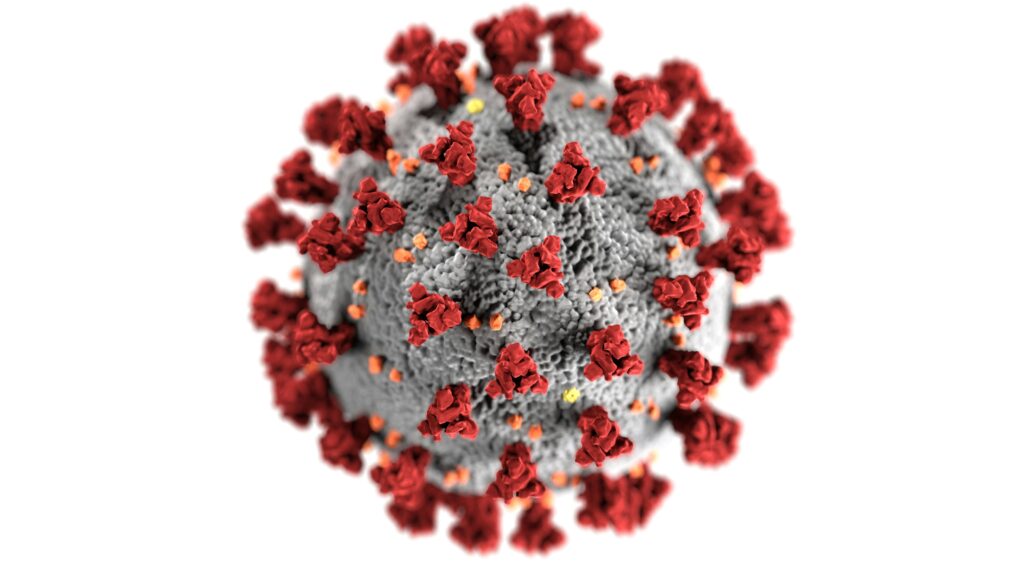Unraveling the JN.1 Variant in New Jersey
As winter descends, New Jersey, like many regions, grapples not only with the seasonal surge in flu and common cold cases but also with a novel challenge — the emergence of a new COVID-19 variant, JN.1. This variant introduces a set of unusual symptoms, reshaping the landscape of healthcare in the state and requiring a nuanced approach to both physical and mental health.
The Evolution of COVID-19: JN.1 Takes Center Stage
COVID-19, a virus in constant evolution, introduces JN.1 as the latest variant causing concern in New Jersey. The Centers for Disease Control and Prevention (CDC) reports that approximately 30 percent of COVID cases in the region are now attributed to this variant. While sharing common symptoms with earlier strains, such as shortness of breath and a loss of taste and smell, JN.1 distinguishes itself with some peculiar characteristics.
Personal Encounter with JN.1
A firsthand encounter with JN.1 reveals not only the physical toll it takes but also the unexpected psychological dimensions it introduces. Despite previous vaccinations, my third bout with COVID-19 presented different and more severe symptoms. Notably absent were the loss of taste and smell, replaced by new and alarming indicators.
Unique Symptoms: Insomnia and Anxiety
The standout symptoms with JN.1 were insomnia and heightened anxiety. Despite profound fatigue, sleep proved elusive, intensifying the overall distress caused by the infection. This departure from conventional manifestations underscores the evolving nature of the virus, presenting challenges for both patients and healthcare providers.
Moreover, JN.1 exacerbated existing mental health issues, intensifying anxiety and depression. This dual impact underscores the interconnectedness of physical and mental health, necessitating a holistic approach to recovery.
Broader Impact on Public Health
The prevalence of unusual symptoms associated with JN.1 poses broader implications for public health in New Jersey. Beyond the physical toll, the variant’s influence on mental health introduces complexities in patient care. Healthcare providers now face the challenge of addressing not only the virus’s physical manifestations but also its potential psychological repercussions.
Dual Challenge: Physical and Mental Health
The dual challenge of managing physical symptoms alongside mental health struggles necessitates an adaptable and comprehensive treatment approach. Public health officials in New Jersey are enhancing protocols to account for the unique characteristics of JN.1, emphasizing mental health support and guidance on managing insomnia and anxiety symptoms.
Response and Preparedness
In response to JN.1, the New Jersey health system is refining existing COVID-19 protocols to address the variant’s distinct challenges. This involves an increased focus on mental health support for patients and guidance for managing the unforeseen symptoms accompanying the infection.
The Role of Vaccination and Preventive Measures
Public health officials stress the continued importance of vaccination and booster shots in mitigating the severity of COVID-19 symptoms, even with evolving variants like JN.1. Concurrently, there is renewed emphasis on preventive measures such as mask-wearing, social distancing, and hand hygiene, especially in crowded and indoor settings.
Impact on the Community
Beyond infected individuals, the psychological effects of JN.1 reverberate through communities. Families and caregivers grapple with increased stress, particularly when faced with unfamiliar symptoms like insomnia and anxiety in their loved ones. The significance of mental health resources and community support systems becomes more apparent than ever.
Learning and Adapting
The experience with JN.1 in New Jersey provides valuable insights into the evolving nature of COVID-19. Researchers and medical professionals closely monitor developments, aiming to better understand the variant’s transmission, symptomatology, and overall impact on health.
Navigating the road ahead involves not only addressing the immediate challenges presented by JN.1 but also preparing for potential future variants. Ongoing research, public health surveillance, and a flexible healthcare system capable of rapid adaptation are crucial elements in managing the ongoing impact of the pandemic.
Read More News:
- Supreme Court to Weigh Constitutionality of Anti-Camping Rules: A Crucial Verdict on Homeless Rights
- Tracing the Strongest Fast Radio Burst to a 7-Galaxy Pileup
The emergence of the JN.1 variant in New Jersey, marked by unusual symptoms and a notable impact on mental health, underscores the unpredictable nature of COVID-19. The state faces the dual challenge of navigating physical and psychological aspects of the virus, highlighting the importance of continued vigilance, public health measures, and holistic care. As New Jersey confronts this new phase, the resilience of its healthcare system, collaboration among public health officials, and community adaptability will play pivotal roles in managing the ongoing complexities of the pandemic.
